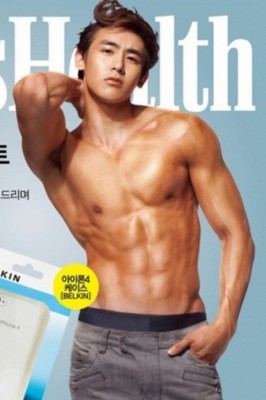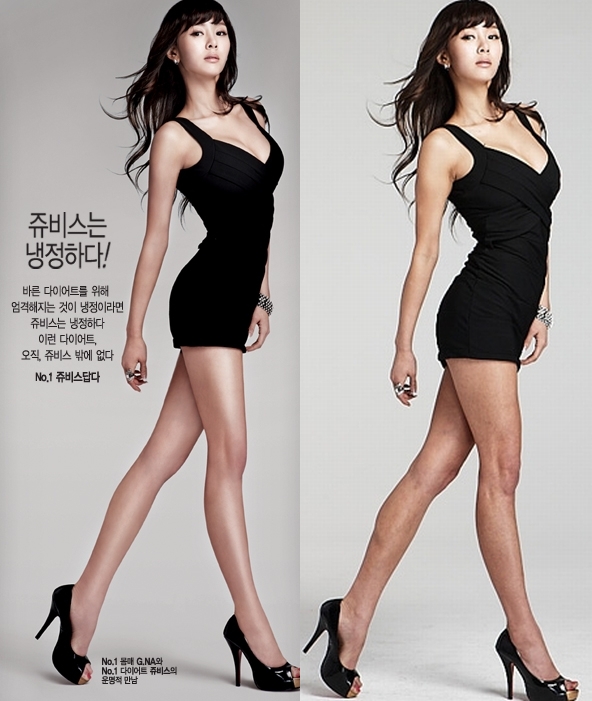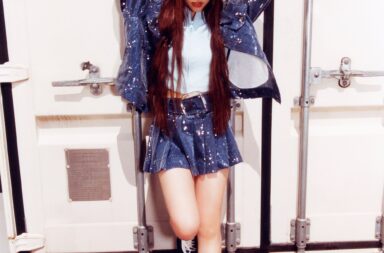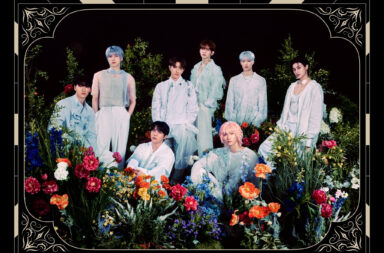 As of late, I’ve been spending a lot of time admiring the looks of some of my favorite biases in an effort to emulate their style with a poor college student’s budget. From Park Bom to Hyosung to Nana, and even Sulli and her new tomboy look, everyone in K-pop seems to be rocking a signature for the season. I’ve been keeping tabs on fashionistas like G-Dragon and my ultimate bias lover Jun.K, as well as Hyoyeon and Goo Hara and Zelo, all the while trying to figure out why they look good in studded shoes and hats and neon sneakers and mesh and red lipstick and why I just look like another hipster wannabe scene kid walking down the streets of Berkeley.
As of late, I’ve been spending a lot of time admiring the looks of some of my favorite biases in an effort to emulate their style with a poor college student’s budget. From Park Bom to Hyosung to Nana, and even Sulli and her new tomboy look, everyone in K-pop seems to be rocking a signature for the season. I’ve been keeping tabs on fashionistas like G-Dragon and my ultimate bias lover Jun.K, as well as Hyoyeon and Goo Hara and Zelo, all the while trying to figure out why they look good in studded shoes and hats and neon sneakers and mesh and red lipstick and why I just look like another hipster wannabe scene kid walking down the streets of Berkeley.
In recent news, a photo of the Jung sisters, SNSD’s Jessica and my secret girl crush f(x)’s Krystal, attending an honorary event for last month’s 2012 London Paralympic Games has surfaced to the internet, fashioning headlines with the descriptive equivalent of ‘amazing genes’ or ‘proving genetic superiority,’ such as in the title of the Naver article that posted the original photo. Of course, the Jung duo looks flawless as always, and the the title “제시카-크리스탈, 극강 비주얼로 우월 유전자 입증” (again, along the same lines as beautiful/amazing visuals prove genetic flawlessness blah blah blah) may actually spotlight some truth about their luck in the odds game of genetics. But this instance also suddenly made me realize where and why my effort to emulate idol style and image was failing so hard.
I’m not an idol.
I know, it’s silly realization to come to, and I’m not any less embarrassed to be sharing it with you all like this, but I find it something worth saying. Think of it this way.
 The term ‘idol’ carries a certain connotation to it. Once labeled an ‘idol,’ you’re held to a certain standard of beauty and perfection, and any sort of relapse into a more human or vulnerable form, such as, say, throwing on sweats or forgoing make up for a day or swapping your contact lens for your good old glasses or even looking a little too exhausted, immediately puts you under serious scrutiny. Netizens go HAM when their idols appear jaded under the spotlight–idols are marred with slurs about their lack of professionalism or lazy decorum, which many netizens and fans actually take offense to. Consider the time way back when T-ara’s Jiyeon looked half asleep onstage during a performance or more recently within the past year when at MTV Studios Taeyeon looked dazed during SNSD’s interview. In either circumstance, netizens would not have it.
The term ‘idol’ carries a certain connotation to it. Once labeled an ‘idol,’ you’re held to a certain standard of beauty and perfection, and any sort of relapse into a more human or vulnerable form, such as, say, throwing on sweats or forgoing make up for a day or swapping your contact lens for your good old glasses or even looking a little too exhausted, immediately puts you under serious scrutiny. Netizens go HAM when their idols appear jaded under the spotlight–idols are marred with slurs about their lack of professionalism or lazy decorum, which many netizens and fans actually take offense to. Consider the time way back when T-ara’s Jiyeon looked half asleep onstage during a performance or more recently within the past year when at MTV Studios Taeyeon looked dazed during SNSD’s interview. In either circumstance, netizens would not have it.
So as a result, we always encounter our idols groomed and airbrushed and runway ready in a moment’s notice. They are always dressed in the season’s latest, often adorned in high fashion accesories. Their physiques are a top priority, causing many companies to invest in a series of trainers and employ extremely restrictive diets to maintain acceptable body image. There never seems to be a hair out of place. But at the same time, we must recognize some this superficial beauty to be exactly that–superficial.
If you are an idol, then you will look like an idol. You will tamed and powdered until you’re picture perfect, maybe even chiseled down by some handy plastic surgeons to better represent ideals of beauty. But to say these genes are ‘superior’ or that appearances prove some ‘genetic superiority’ is fallacious. Nobody walks out of the womb with trim thighs, double eyelids, killer abs, a sculpted nose, a dye job, and full face makeup. So to call that an image of a person with ‘amazing genes’ is delusional. Delusional because idols are conditioned to look that way, because anybody can be made to look that way. Genetics did not predispose them all to honey thighs, ant waists, or chiseled chocolate abs. I mean sure, maybe sometimes, because you can’t deny biology, but more often than not, idols looks flawless because they were crafted to be that way or they’ve been perfected by means of photoshop, or both.

In all due respect to the Jung sisters, even I can’t deny that they are both stunning and fit and posh. Also, I don’t think that photo of them was doctored either. But they’re also both idols, so that implies that they’ve been polished, to some considerable degree, to look as picture perfect as they do. So to call them, or any image of an idol for that matter, visually superior is pretty much like calling a rainbow parrot the visually superior seagull. It’s comparing apple and oranges. You just can’t. They’re too different species at this point. (Especially when editors photoshop washboard abs and forget the belly button.)
And, yes I admit, I’m probably making a big deal out of nothing. Tabloids break news everyday boasting these dumbass headlines about idols in all their perfection. It really isn’t something that should absolve this much of my time. But little things like this are what aggravate bigger social problems. It is also what has led me to believe that I could be Park Bom just by dying my hair red-orange and buying a thick pair of false eyes lashes. Believe me, I’ve already done both, and I still don’t look anything like Park Bom.
Long story short, I’ve come to the personal realization that emulating style is one thing, but to expect to look like your favorite idol just by copying some of things they do and wear won’t make you an idol or even idol-like by any means. The bigger picture here, though, is to get reacquainted with what is means to be an idol, a label that often defines an image that has no real-life, everyday social equivalent.
 Thus, allowing idols to be described as being visually or genetically superior is an erroneous assessment of human beauty. And that is because such an assessment considers features not predisposed by human genetics, but by an idol lifestyle. You and I are not idols; therefore to be indirectly compared to them along a superficial standard is an entirely inaccurate pass of judgement.
Thus, allowing idols to be described as being visually or genetically superior is an erroneous assessment of human beauty. And that is because such an assessment considers features not predisposed by human genetics, but by an idol lifestyle. You and I are not idols; therefore to be indirectly compared to them along a superficial standard is an entirely inaccurate pass of judgement.
Idol beauty is quite literally skin deep. And if you find yourself trying to measuring up to them and feeling slighted because you can’t (much like myself) don’t think you’ve been dealt a dose of inferior genes, as somethings might imply. Beauty as it is defined by the pop culture we love so much is an ill-fated definition to follow. But it also isn’t realistic. So don’t feel obligated to follow it.
I’m not saying you can’t love your idols for who and what they are, because I know you always will. Hell, I always will–Bommie can pump enough plastic into her face to turn into a Barbie doll, but I’d still love her. Love your idols in all their flawlessness and worship their perfection, so on and so forth. It’s okay–it’s pop culture, that’s just how it is. But when it comes to you and your real life, don’t hesitate to damn the visual hierarchy pop culture has so accustomed you to, and forget what they have to say about what makes who superior or inferior. Find beauty as it applies to you, and you will always be beautiful.


